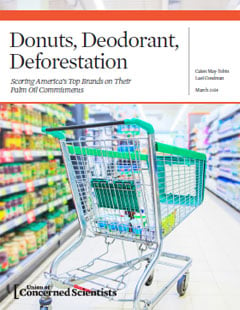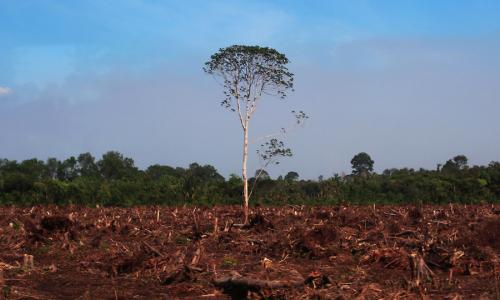Note: This is the first edition of the Palm Oil Scorecard, published in 2014. The most current version is here.
You may not realize it, but palm oil is everywhere. Demand for this inexpensive, versatile vegetable oil has skyrocketed in recent years, and it can be found in thousands of common consumer products, from cookies to toothpaste.
While it may be cheap in economic terms, however, palm oil carries a high environmental price tag. As conventionally produced, palm oil drives tropical forest and peatland destruction, wiping out habitat for endangered species and contributing to climate change.
The new standard: deforestation-free palm oil
The good news is that palm oil doesn't have to come with these unacceptable impacts. New industry standards show that palm oil can be produced in a way that protects tropical forests, peatlands, and our atmosphere—and some companies in the palm oil supply chain have begun to commit to the new standards.
The bad news is that these forward-looking companies are still in the minority. Many more are relying on the inadequate standards set by the Roundtable for Sustainable Palm Oil (RSPO), while some companies have yet to commit to any palm oil standards.
It doesn’t have to be this way.
Scoring the companies
To highlight the limitations of current efforts and persuade more companies to adhere to the new industry standards, UCS analyzed the 10 largest firms in each of three different sectors—packaged food, personal care, and fast food—and scored them on the extent of their global commitments to use palm oil that is deforestation-free, peat-free, and traceably and transparently sourced.
To see the results for all 30 companies, download the report.







